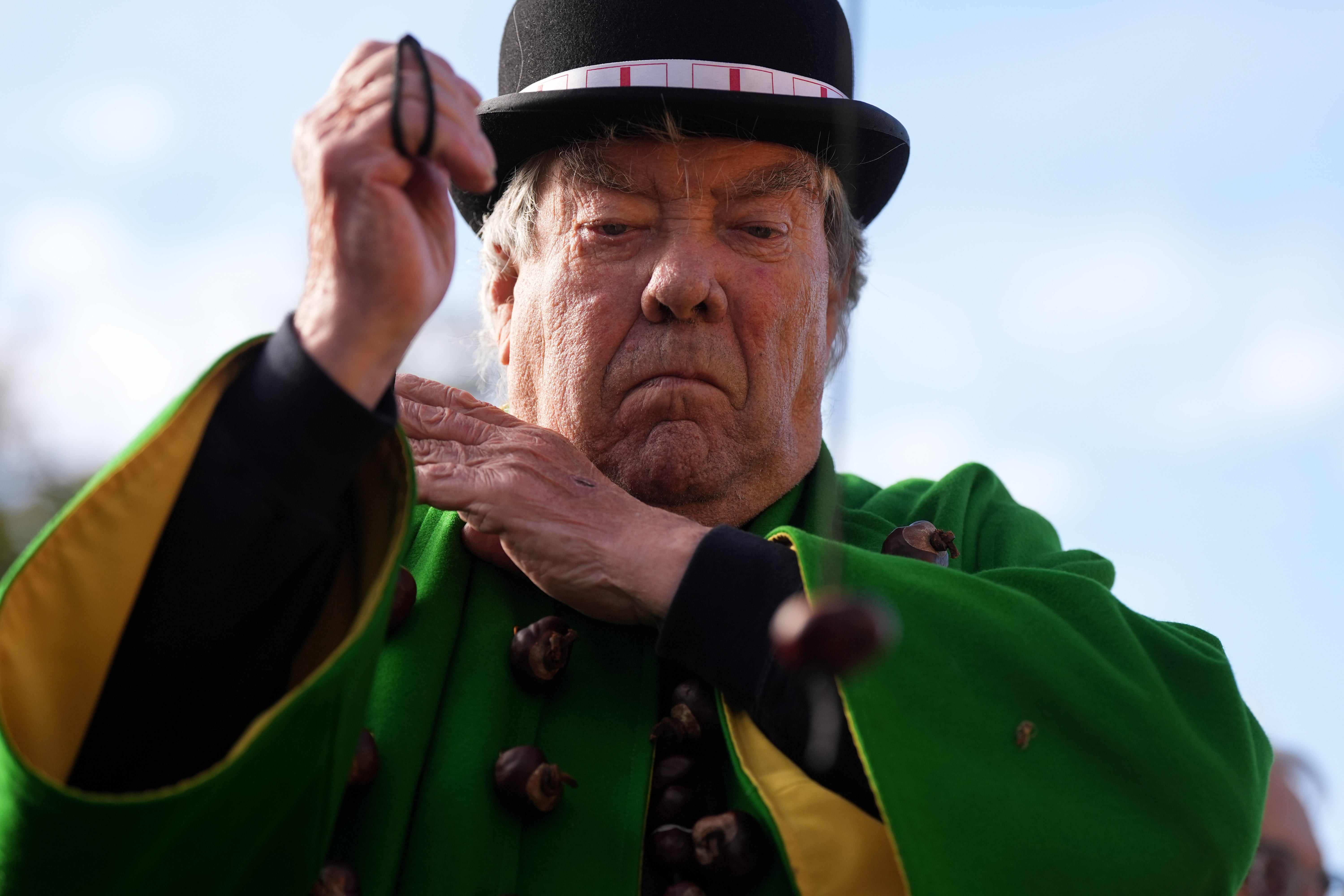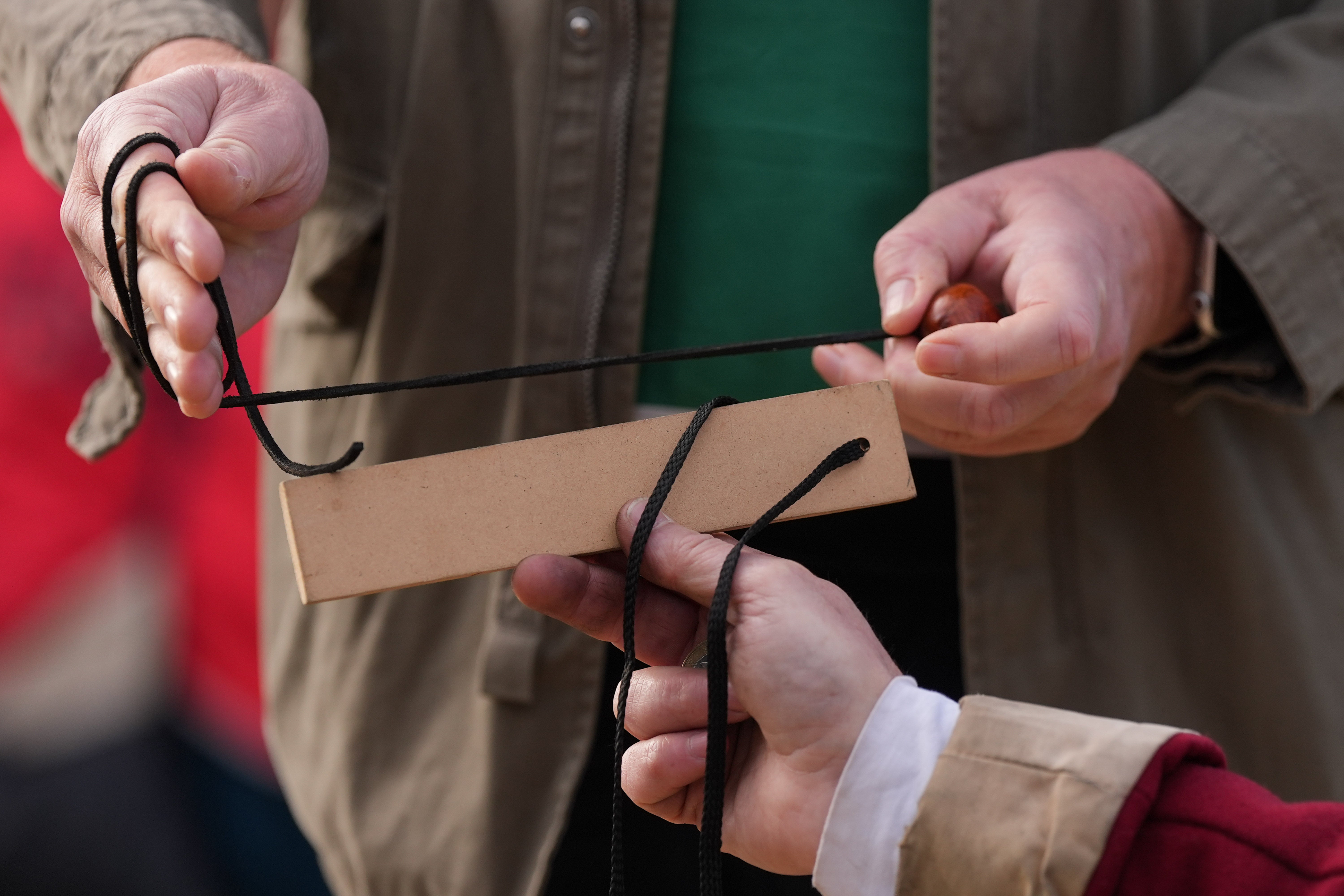The Conker World Championships has been embroiled in a cheating scandal after the winner of the tournament was discovered with a steel decoy in his pocket.
Known as “King Conker”, David Jakins secured the 2024 men’s competition title at the international event in Southwick, Northamptonshire, this weekend.
However, the validity of his victory has been called into question after cheating allegations surfaced, accusing him of using a conker made of steel to “obliterate” his opponents.
After the competition, the retired engineer was found to have a steel dummy, shaped and painted to look like a real conker and threaded on identical lace.
The 82-year-old, who was also responsible for drilling and threading the conkers that competitors choose randomly from, also faces accusations of marking the strings to identify the strongest ones.
Jakins, who has entered the competition 46 times in the past, has denied all of the allegations.

St John Burkett, spokesperson for the Conker World Championships, said he and other organisers became aware of the steel conker by the end of the competition, and that the committee had met to investigate the allegations.
“I have to say it looks exactly like a real conker,” he told Sky News, adding that the committee is likely to rule out foul play. “He showed us it at the end. It’s almost a bit like a lucky charm I think, like a treasured possession.”
He added that organisers had “managed to find a few of the conkers David won matches with, which he threw into the crowd”, and that he had personally overseen the men’s final.
He said: “There’s absolutely no way he could have swapped the conker with both me and the chief judge right there next to him looking very carefully.
“It looks like he’s in the clear.”

All competitors need to follow a stringent set of rules to ensure the event is as fair as possible; the conkers and laces used must be provided by organisers and laces cannot be knotted further or distorted.
The allegations surfaced after the final in which Jakins beat his opponent in just one hit. However, Mr Burkett said his victory was likely down to his unique technique.
“He won with this fantastic hitting technique,” he said. “He broke the conker in the men’s final with one hit, which was fantastic. It’s probably due to his technique and that’s what it’s looking like at the moment but we just need to complete our investigations.”
More than 200 people entered the competition at the Shuckburgh Arms in Southwick this year.
The event sees participants go head to head using conkers threaded onto a string to try and smash their opponent’s nut. Each player takes three alternate strikes at the opponent’s conker.
Additionally, a minimum distance of no less than 20cm of lace must be between knuckle and nut for both the “striking” and “receiving” players.
Further rules apply if a game lasts more than five minutes and penalties can also be given for foul play.
The main aim of the event since its inception in 1965 has been to raise money for charities that support the visually impaired, with more than £400,000 being raised over the years.
The Independent has made efforts to contact Mr Jakins.

